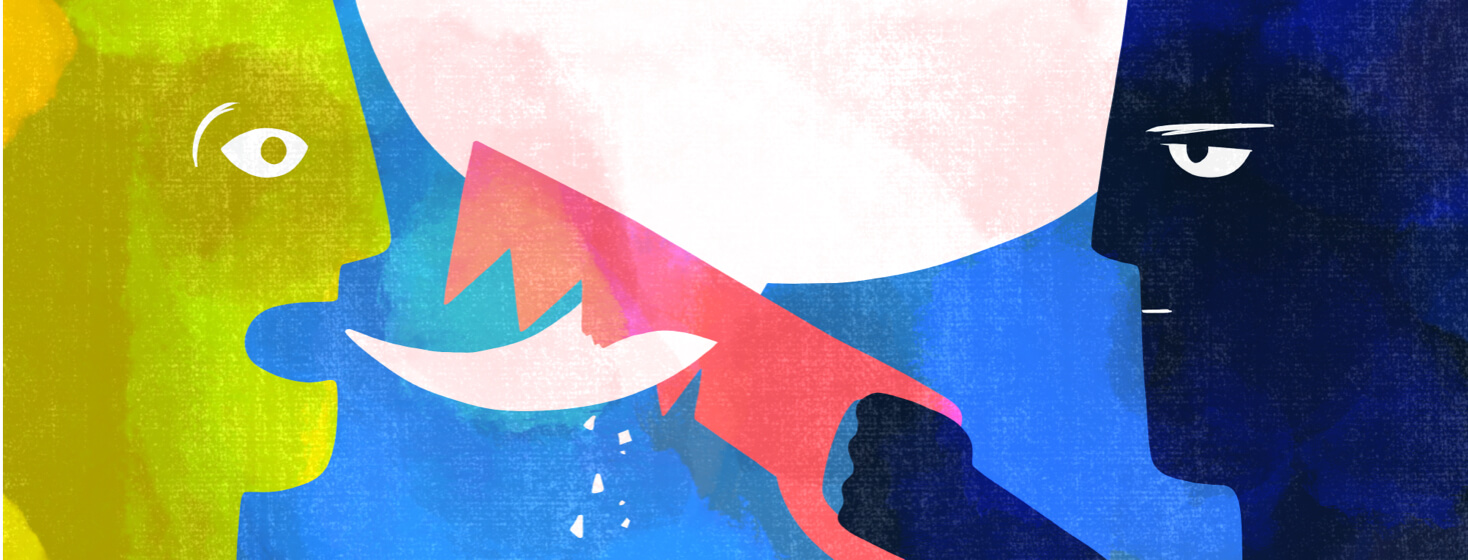Insensitive Reactions to People with Thyroid Eye Disease
Symptoms of thyroid eye disease (TED) can be impossible to hide. The effects are often right there on the most visible part of your body – your eyes and face.
In our Inaugural TED in America survey, half of people with TED said they feel judged based on how they look. A full 54 percent of people said that stigma adds anxiety to their daily lives. Even more – 63 percent – reported a negative impact on their self-esteem.
The reactions of other people can lead people with TED to isolate themselves. Many reported that those reactions have a noticeable impact on their mental health.
The 2022 TED In America Survey gathered insights from people living with TED to better understand the condition’s impact on their lives. In it, we asked the optional question "What is the most insensitive reaction or comment you have received since experiencing symptoms of TED?"
Reacting negatively due to ignorance about thyroid eye disease
One survey respondent explained, “People assume that I am intoxicated or sleep deprived. Or that I may even have a mental health condition. Or cannot concentrate because I have to constantly blink or adjust how I look at things. Biggest thing is people don’t understand that sometimes I cannot focus and assume I am faking it. I hear ‘It can’t be that bad’ or try to justify it by saying they have something wrong with them that is totally not related. Or get made fun of because of how my eyes look.”
One respondent referred to the insensitivity of friends and family who say, “Wow! You look terrible!” She added, “I now work from home and do not go to work-related functions.”
Another said, “No one understands what it’s like to live with TED and how every day is different. I live with a lot of fear not knowing what’s next, how I will look, and when it will be over. It’s hard to accept that I don’t look the same anymore.”
Commenting on the appearance of your eyes
Many people with TED reported negative comments about the appearance of their eyes.
“I’ve been pulled over for speeding then searched for drugs (I don’t do drugs) because my eyes are red. Little kids look at me like I’m a monster and ask why my eyes poke out,” one survey respondent wrote.
Other rude comments survey respondents had heard included:
“You look like a goldfish.”
“What is going on with the crazy eyes?”
“Your eyes look scary.”
Saying you look tired or older
Some people think those with TED are just tired and should get more sleep. They may even share their opinion that the person with TED is looking old.
“I have received comments and strange looks, like what happened to me and why I look old and why I have bags under my eyes and my eyelids are fat. People look at me like they feel sorry for me, and I hate that look,” a respondent said.
Thinking you are staring or mimicking
Several survey respondents mentioned that their wide-open eyes appear to be staring and sometimes prompt others to stare back at them. Some observers think it’s funny. Some even take pictures.
Survey comments about this included:
"There is an assumption that I am deliberately widening my eyes or staring at people.”
“People would stare at my eyes when I was at the height of TED. It is so embarrassing. I have to wear glasses to see, so that made the bulging even more noticeable. I would look in the mirror and feel a panic coming and start to cry.”
“People stood up at family parties and mimicked bulging their eyes out to look like me. Of course the ‘you look like a deer caught in the headlights’ comments were always not fun too.”
Not believing that some symptoms are invisible
Besides affecting a person’s appearance, TED can cause eye pain and vision problems. Some people who answered the survey question said these invisible symptoms were even more distressing.
“Family just does not understand when I tell them I have a hard time seeing. Nobody understands why it takes me so long to complete simple tasks that I used to do with ease,” one person wrote.
“Family and friends downplay the severity of my condition and what it has done and is doing to me. I’m navigating this alone, and it’s very scary and traumatizing,” another said.
It was upsetting for a person with TED to hear “Just wear sunglasses” when she was disabled by bright light. “My light sensitivity when I was outside was so extreme the pain was excruciating, and the eye-watering was literally blinding. I was stuck on a street corner and could not cross the street, as I couldn’t tell where the cars were.”
Finding emotional support
Although coping with the stigma of TED can be difficult, finding support is possible. Explaining your condition sometimes pays off with family and friends who are helpful, caring, and loving. One lucky respondent said, “My friends and family would never say anything to hurt my feelings.”
The 2022 TED in America survey was conducted online from January 10, 2022, to April 6, 2022. The survey was completed by 100 adults.
Do you have a thyroid eye disease (TED) story? Click the button below to share with our community!

Join the conversation